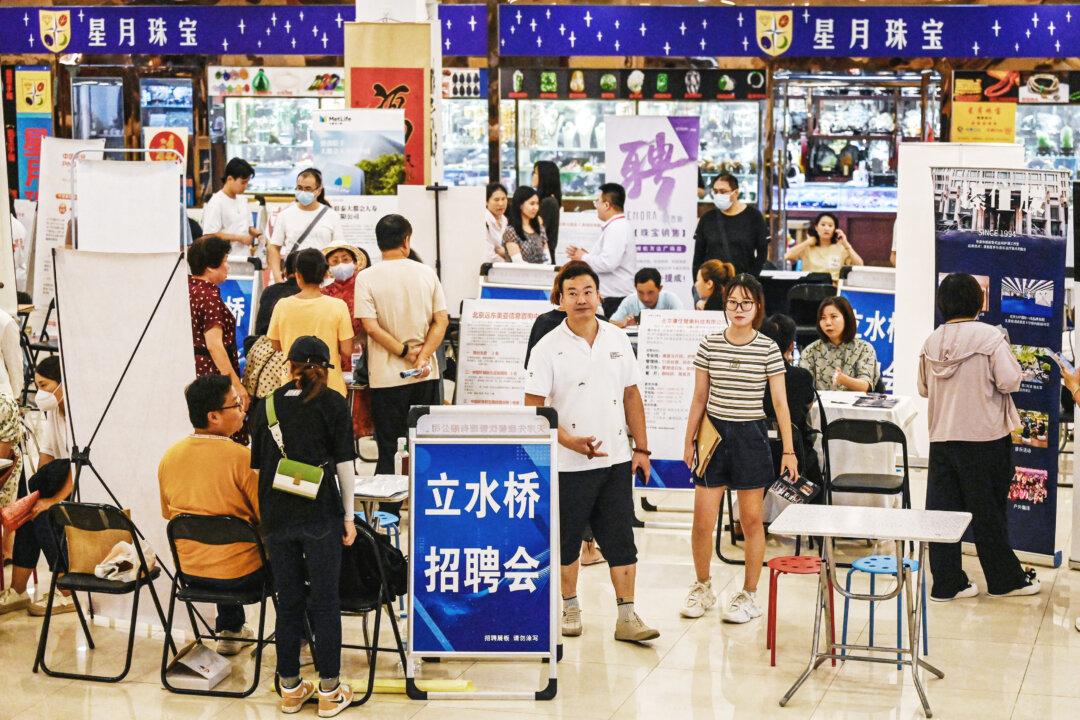Following layoff announcements from ByteDance, the parent company of TikTok, and Chinese e-commerce giant Alibaba, the latest official survey data show that the manufacturing sector contraction continues from October, signaling a continuation of China’s economic slowdown amid its recovery efforts.
According to a report released by China’s National Bureau of Statistics on Nov. 31, the official manufacturing Purchasing Managers’ Index (PMI) fell to 49.4 in November from 49.5 in October, while the non-manufacturing PMI fell to 50.2 in November from 50.6 in October.

